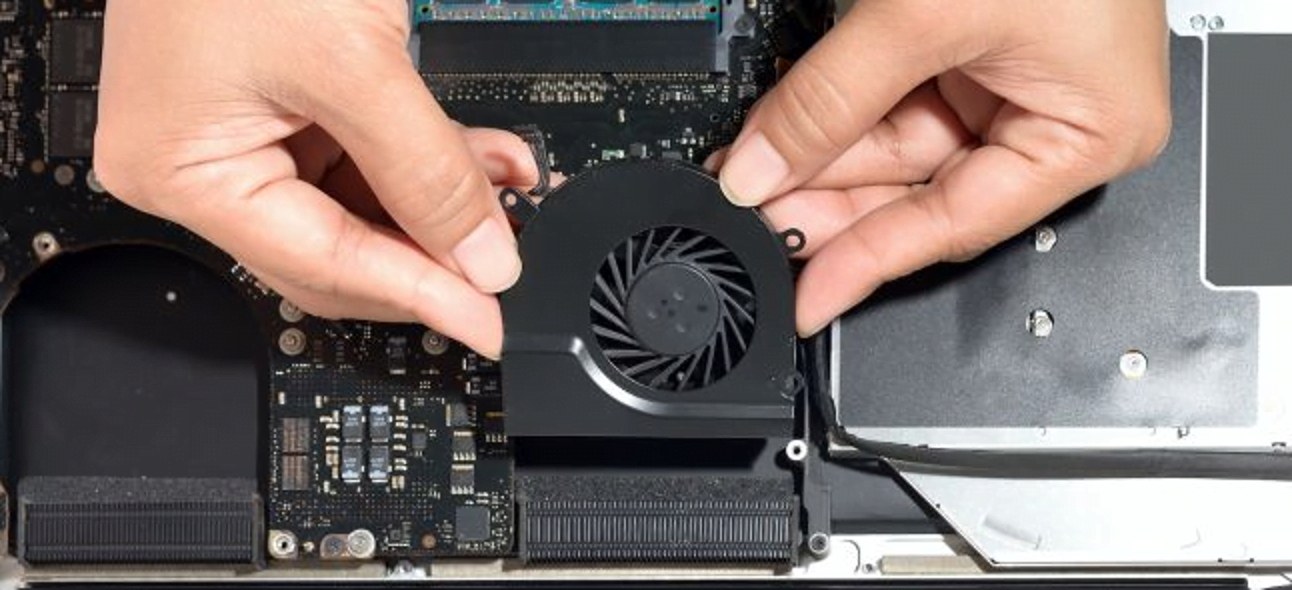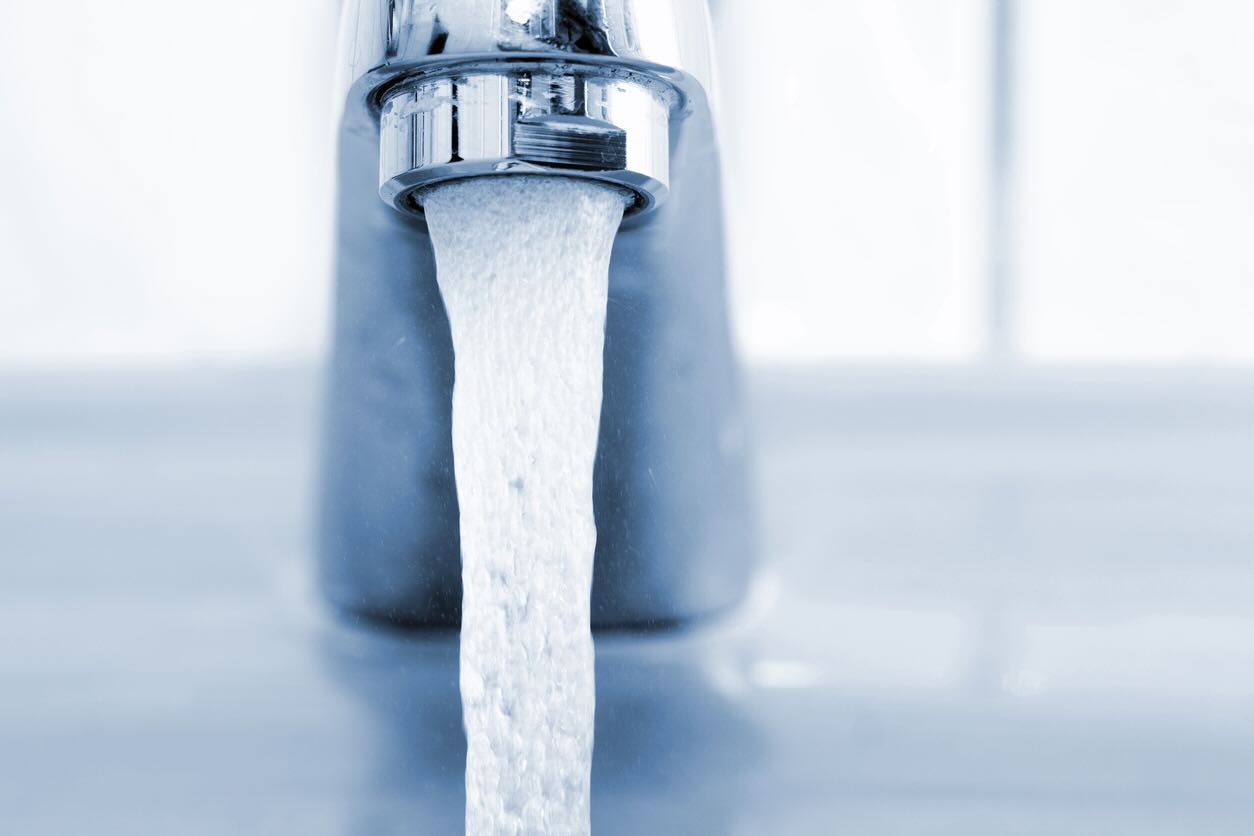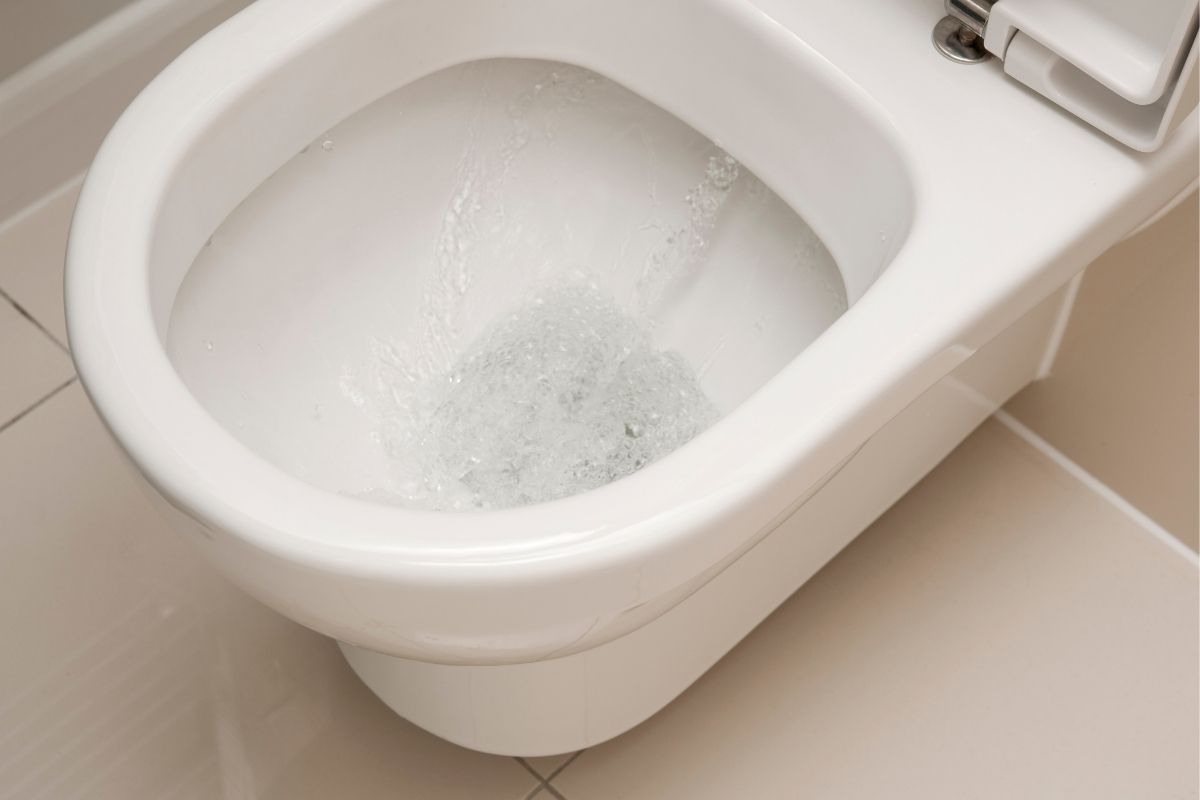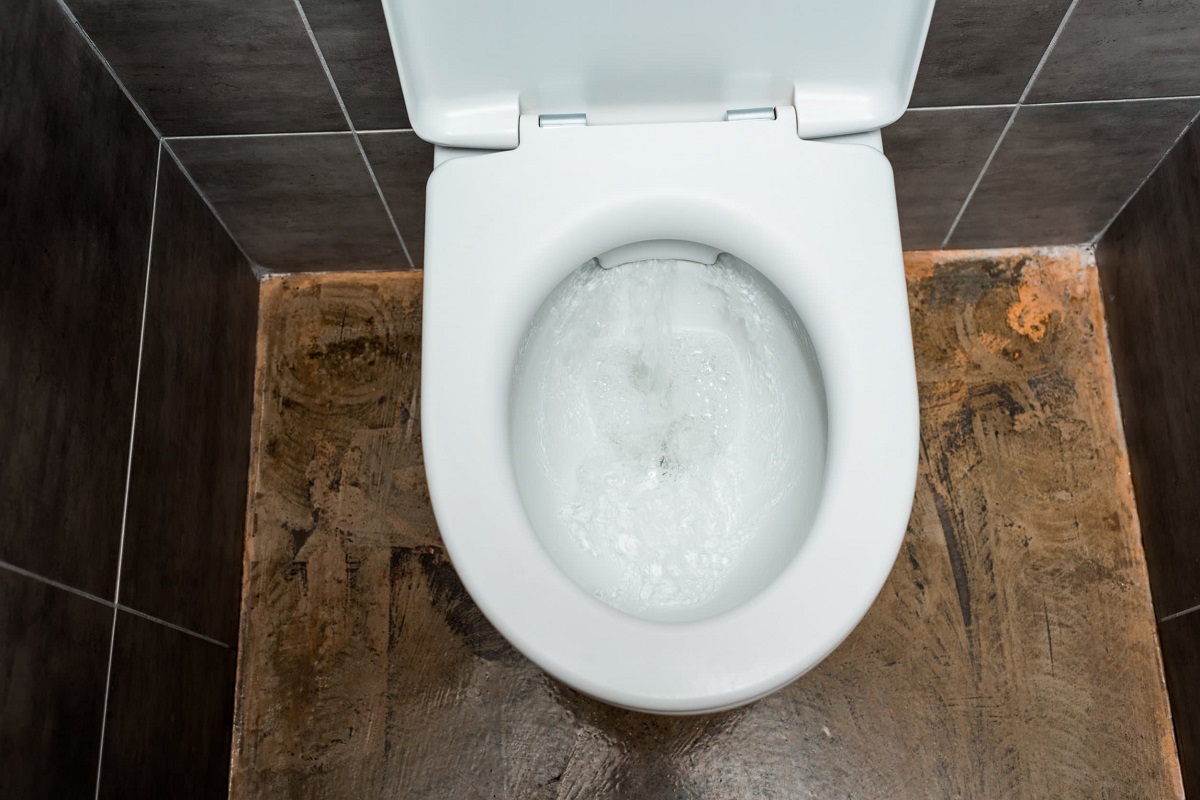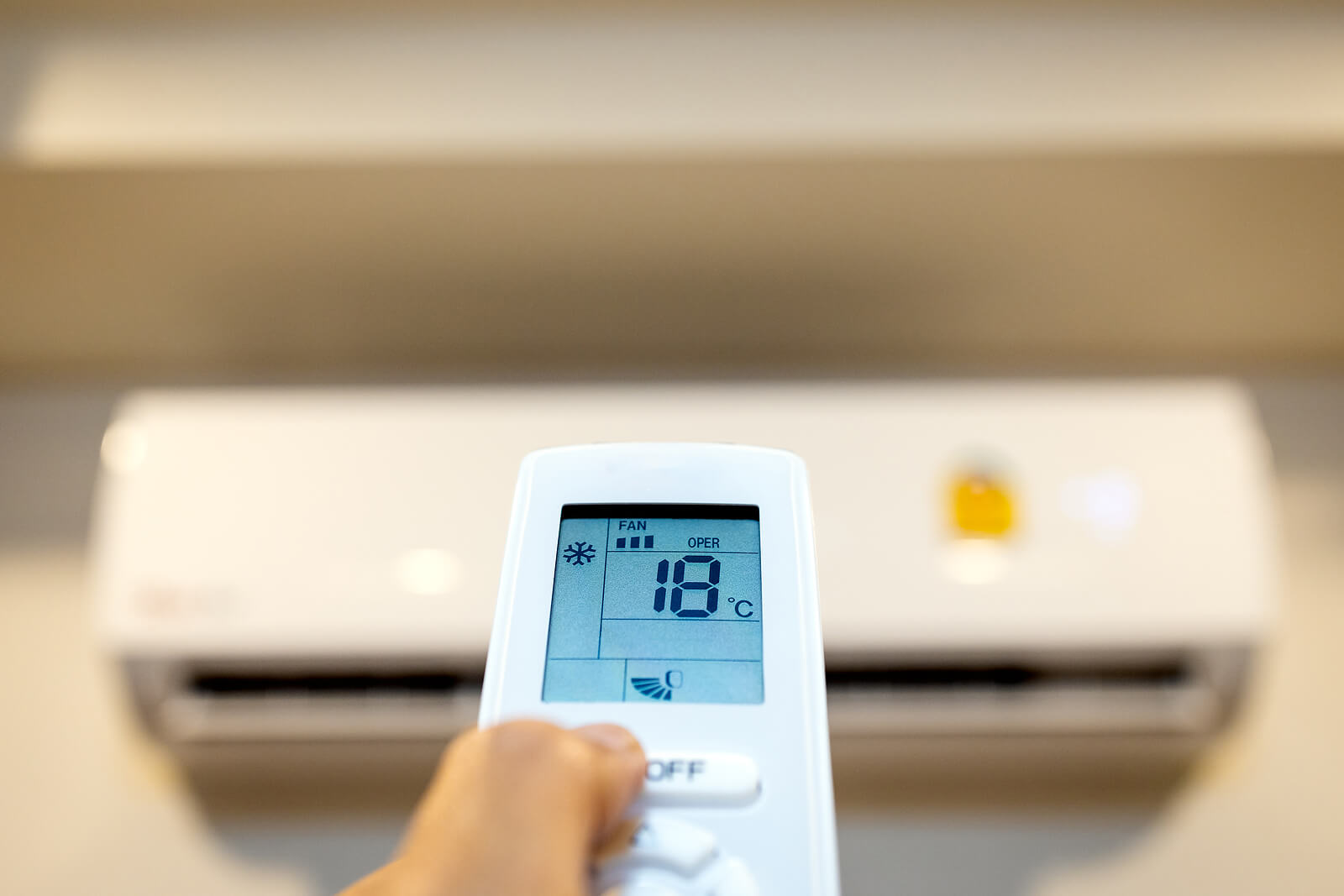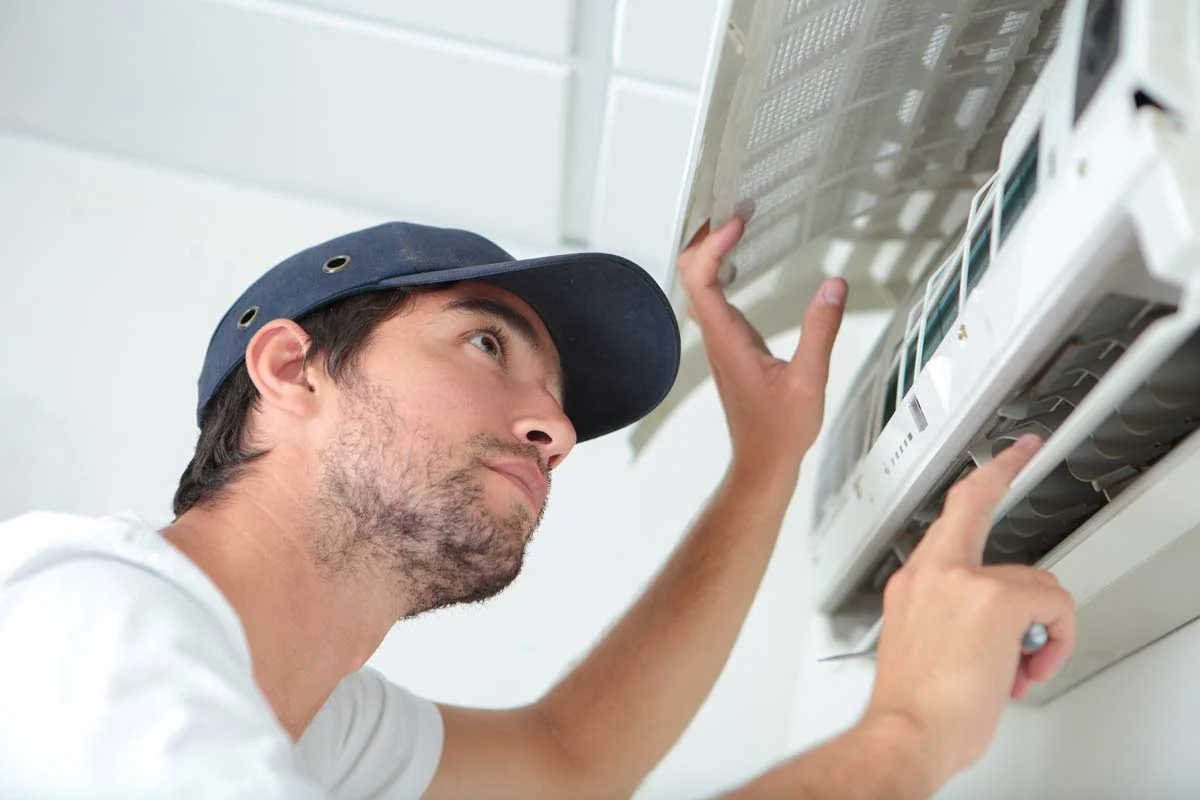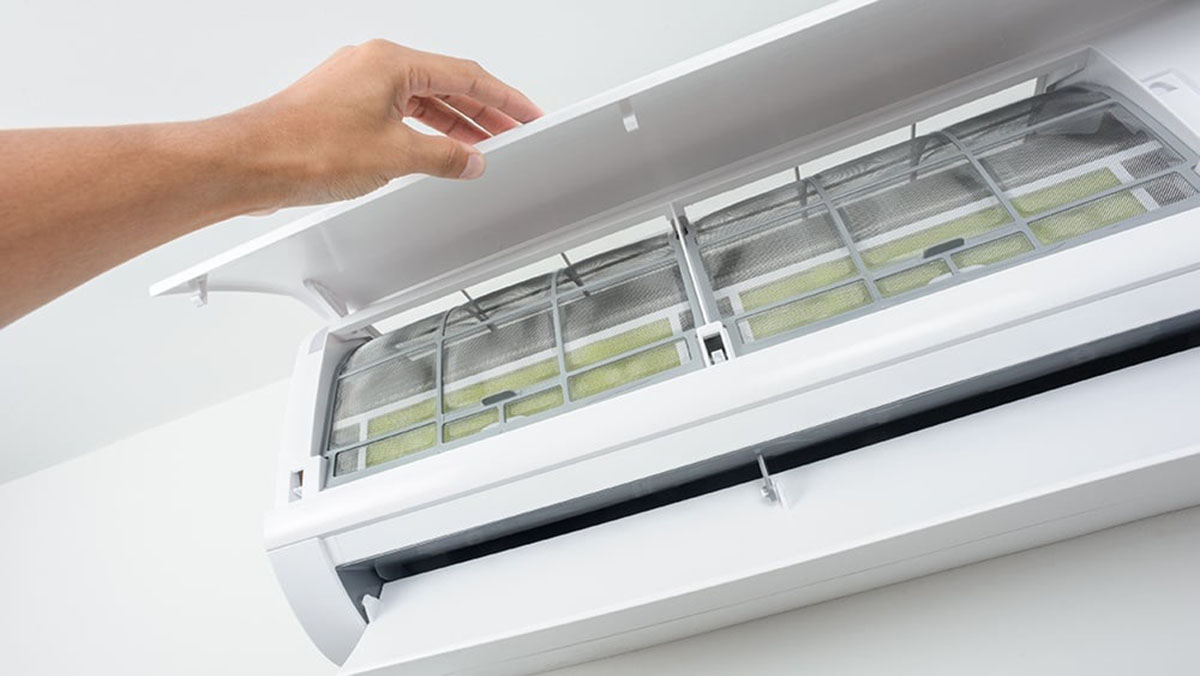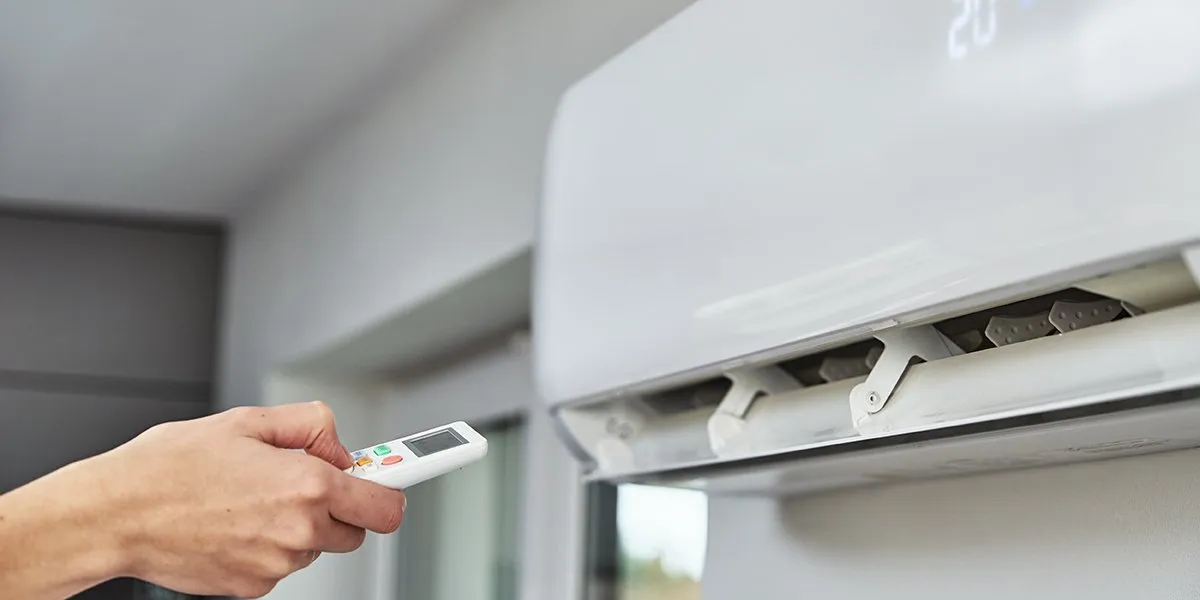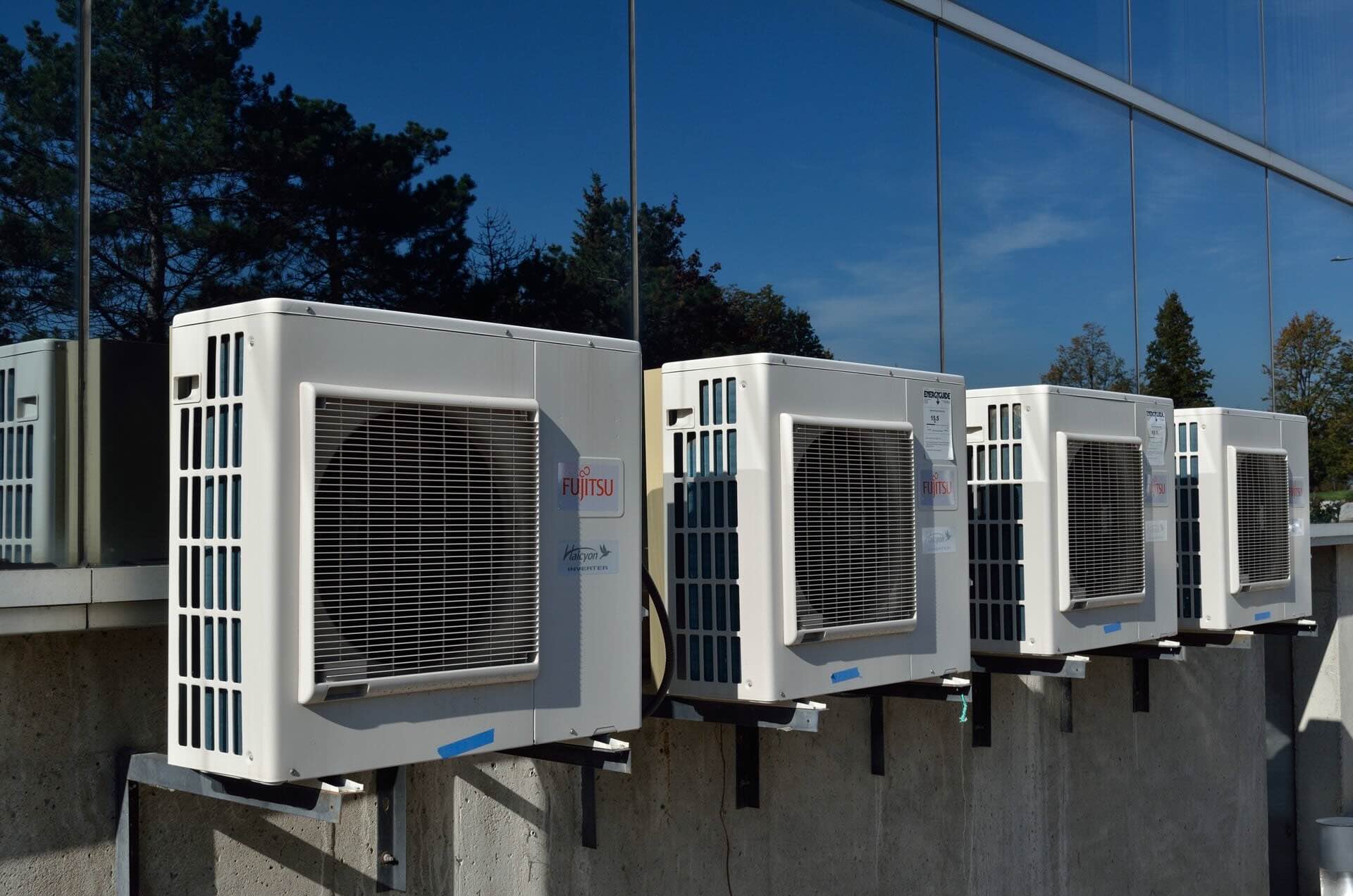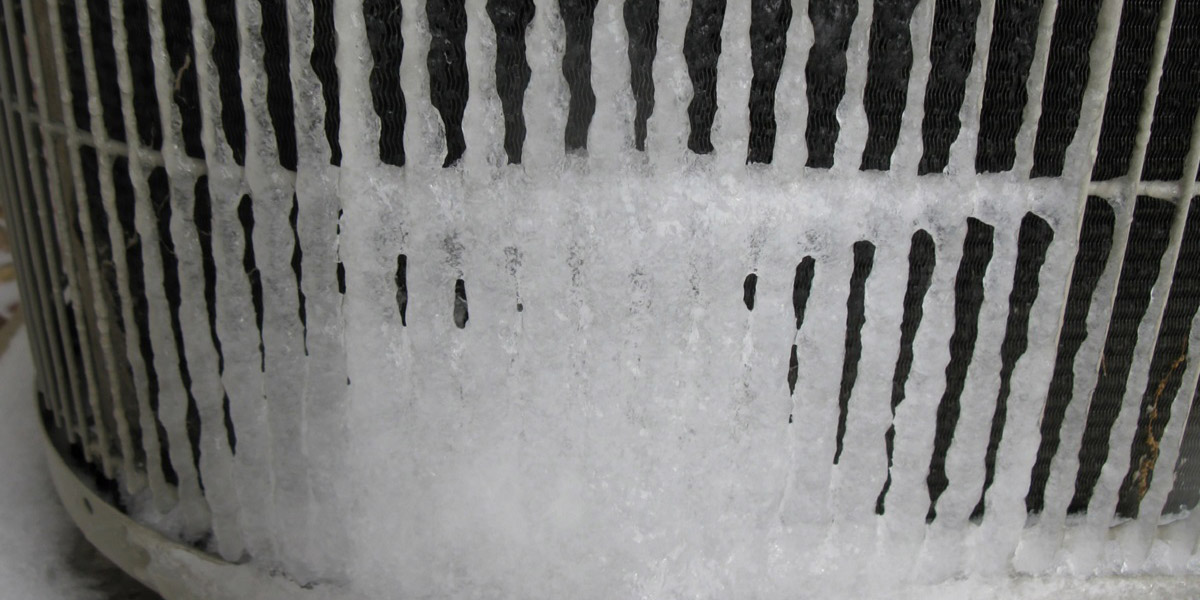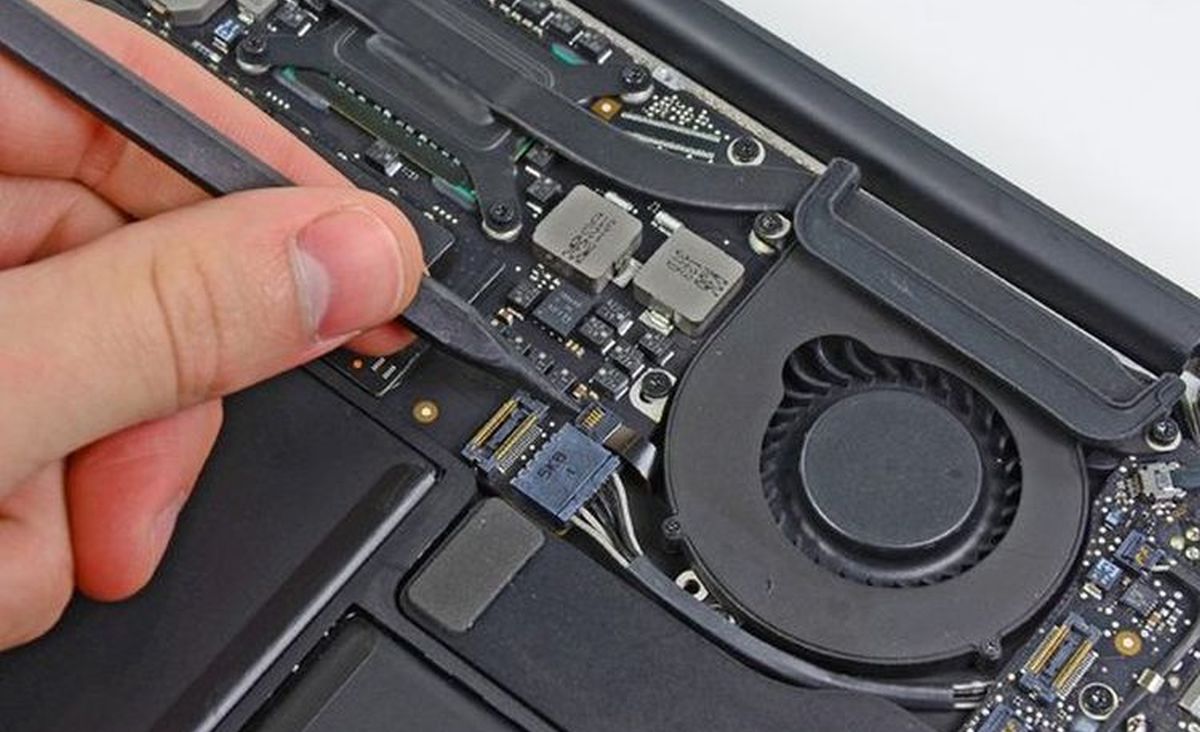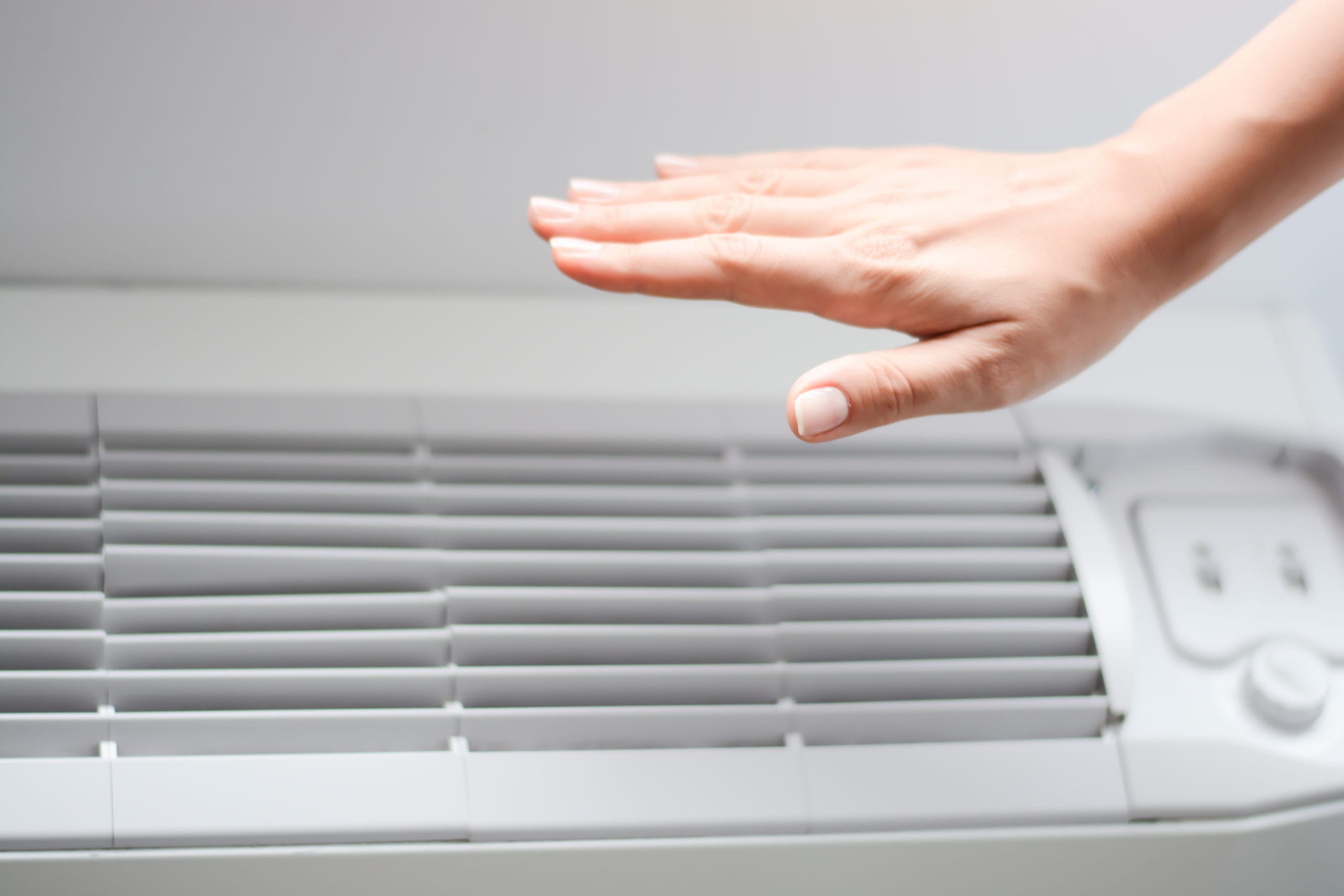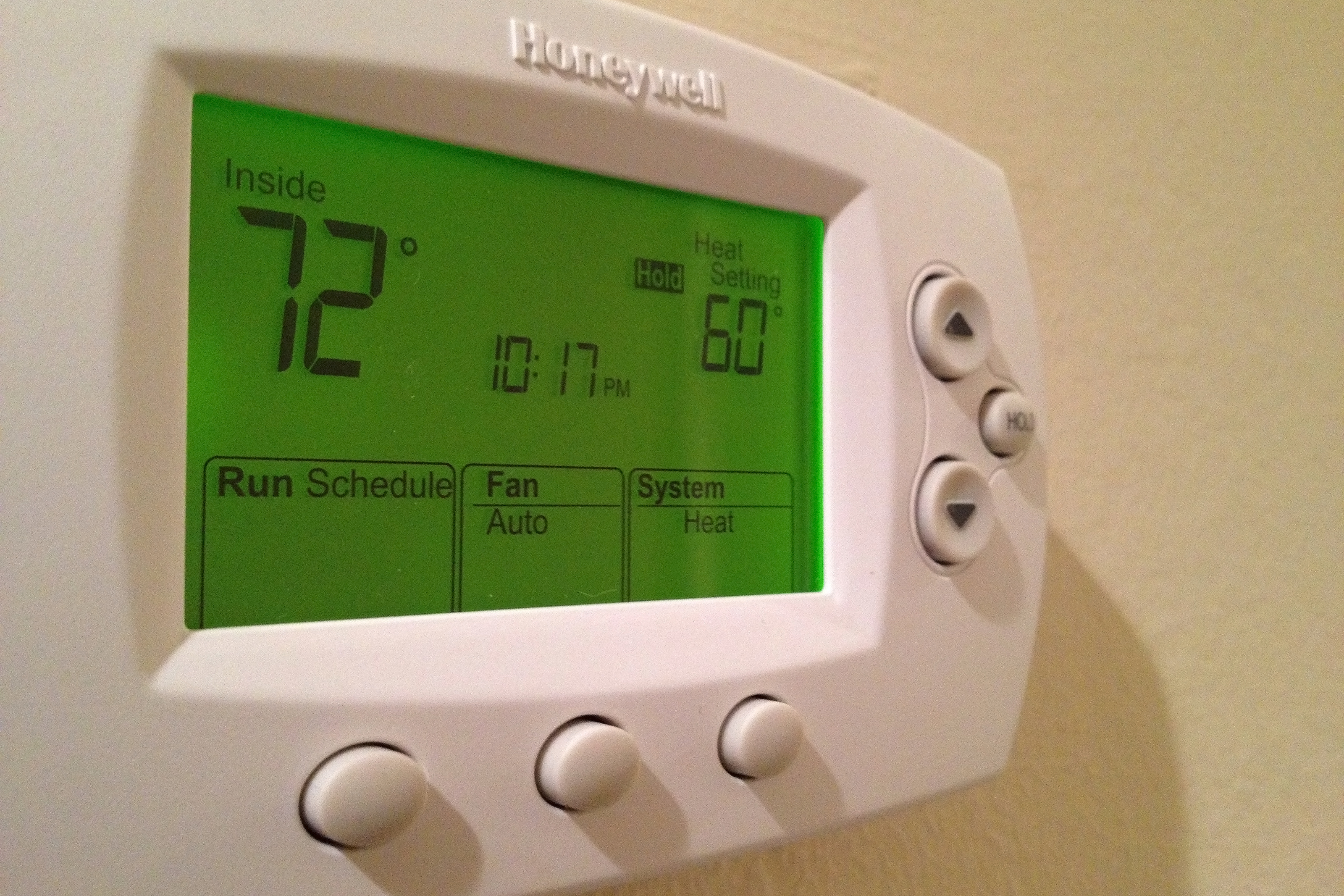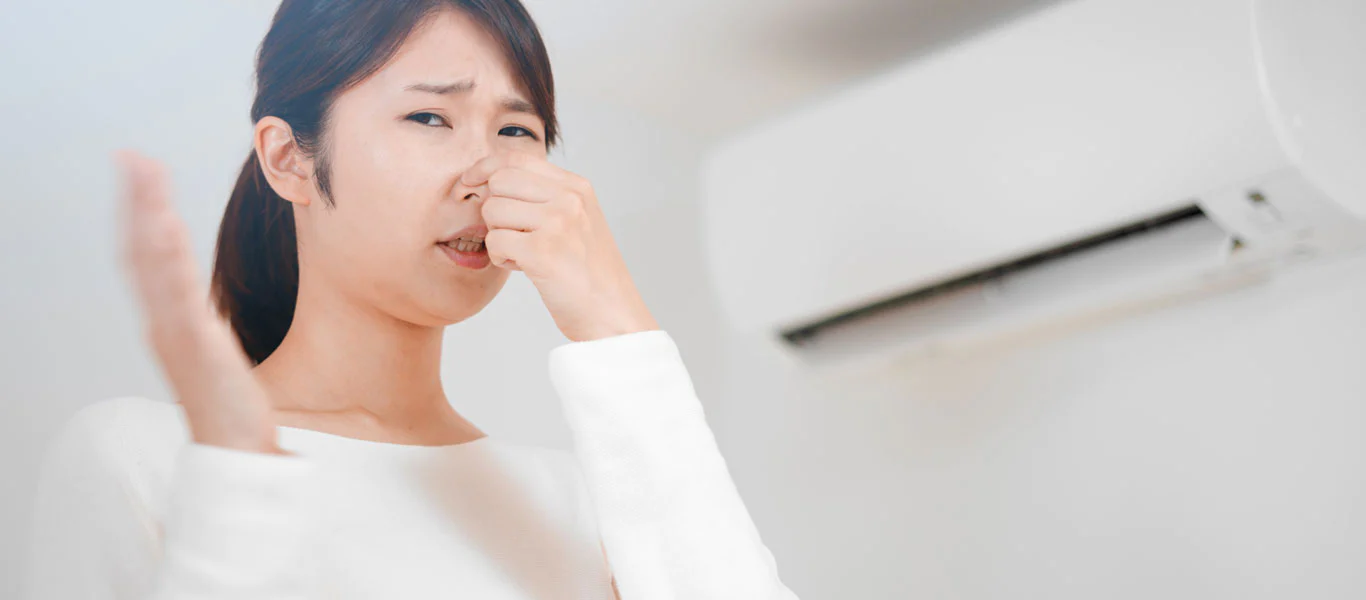Home>Home Maintenance>Why Is My Air Conditioner Running But Not Cooling The House?
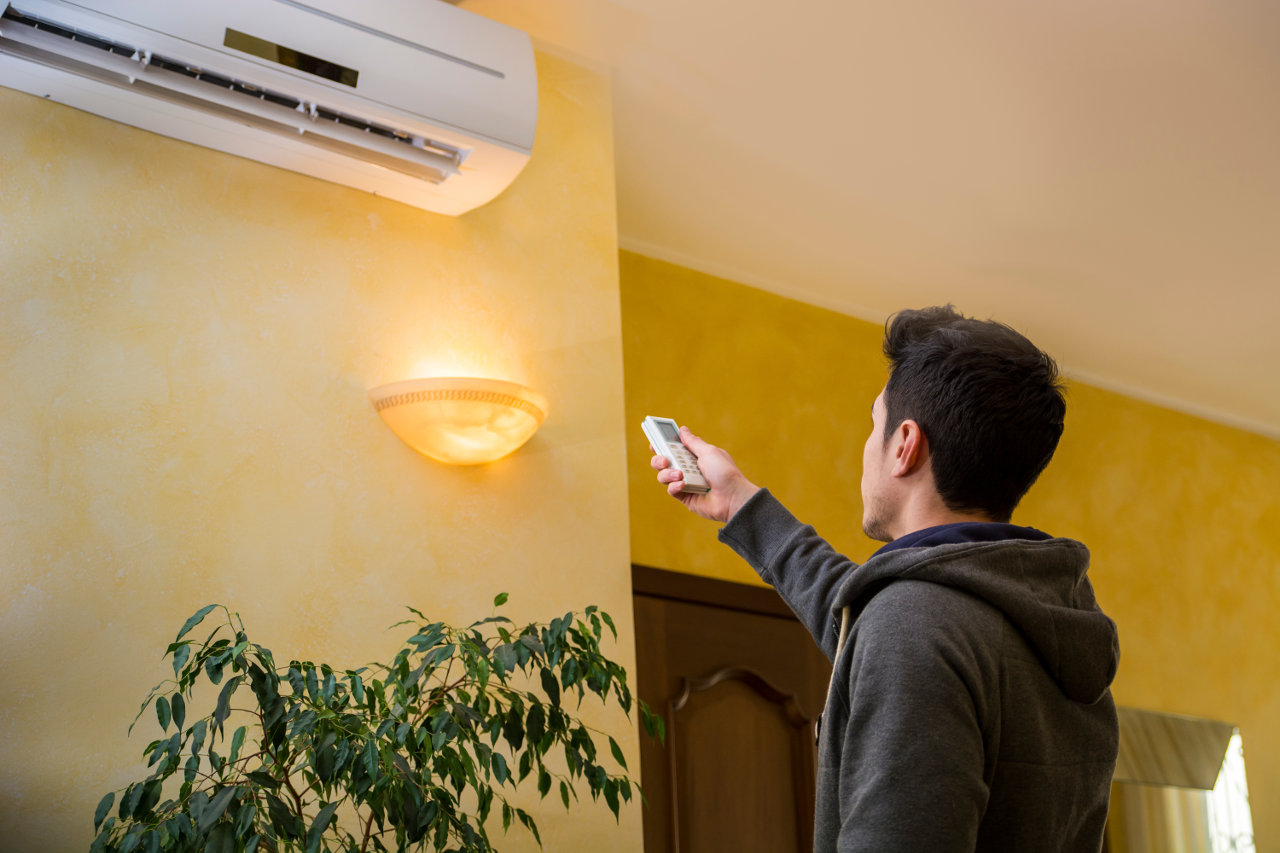

Home Maintenance
Why Is My Air Conditioner Running But Not Cooling The House?
Modified: March 7, 2024
Learn why your air conditioner is running but not cooling your house and discover essential home maintenance tips to fix the issue.
(Many of the links in this article redirect to a specific reviewed product. Your purchase of these products through affiliate links helps to generate commission for Storables.com, at no extra cost. Learn more)
Introduction
Have you ever noticed that your air conditioner is running, but your house doesn’t seem to be getting any cooler? It can be frustrating and uncomfortable, especially during hot summer months. Understanding the potential reasons behind this issue can help you troubleshoot and resolve the problem.
There are several factors that can cause your air conditioner to run but not cool your house effectively. In this article, we will explore some of the common issues that can lead to this problem. By identifying the root cause, you can take the necessary steps to fix it and restore your home’s comfort.
From thermostat problems to ductwork issues, there are various factors to consider when your air conditioner fails to cool your house properly. Let’s dive into each of these potential culprits and explore possible solutions.
Key Takeaways:
- Keep your air conditioner running effectively by regularly replacing dirty air filters and ensuring that air vents are unobstructed for proper airflow and cooling efficiency.
- Address potential issues such as thermostat problems, refrigerant leaks, and insufficient insulation to optimize your air conditioner’s cooling performance and create a comfortable indoor environment.
Thermostat Issues
One of the first places to check when your air conditioner isn’t cooling your home is the thermostat. The thermostat acts as the control center for your HVAC system, telling it when to turn on and off and at what temperature to operate.
If your air conditioner is running but not cooling, the issue could be with the thermostat settings. Make sure the thermostat is set to “cool” mode and that the temperature is set lower than the current room temperature.
It’s also possible that the thermostat is faulty or not calibrated correctly. Check for any signs of damage, such as a cracked screen or unresponsive buttons. If you suspect the thermostat is the culprit, consider replacing it with a new one or consult a professional technician to assess the issue.
In some cases, a simple battery replacement may resolve the problem. If your thermostat runs on batteries, try replacing them to ensure proper operation.
Furthermore, the thermostat location can affect its accuracy. It should be installed away from direct sunlight, heat sources, or drafts that could lead to incorrect temperature readings. If the thermostat is poorly placed, it may not accurately gauge the actual temperature of your home, leading to inefficient cooling.
Regular maintenance of your thermostat is crucial to ensure its smooth functioning. Clean the thermostat regularly to remove any dust or debris that may affect its sensors. Additionally, consider scheduling professional maintenance checks to verify its accuracy and make any necessary adjustments.
If you’ve ruled out thermostat issues and your air conditioner is still not cooling your home effectively, it’s important to address other potential causes.
Dirty Air Filters
One of the most common reasons for an air conditioner running but not cooling the house is dirty air filters. Air filters are an essential component of your HVAC system as they help trap dust, pollen, and other particles from circulating in your indoor air.
Over time, these filters can become clogged with dirt and debris, restricting the airflow and reducing the cooling capacity of your air conditioner. When the air filters are dirty, the proper amount of air cannot pass through, causing the system to work harder and potentially freeze up.
To determine if dirty air filters are the cause of your cooling issues, check the filters and inspect them for dirt and dust buildup. If they appear dirty or clogged, it’s time to replace them. It is generally recommended to replace air filters every one to three months, depending on the manufacturer’s guidelines and the amount of dust in your home.
Replacing the air filters is a relatively simple task. Locate the filter compartment, usually located near the return air duct, and remove the old filter. Be sure to install a new filter with the correct size and orientation, following the arrows or instructions printed on the filter.
By regularly changing your air filters, you can improve the efficiency of your HVAC system and ensure proper airflow throughout your home. This will not only help your air conditioner cool your house more effectively but also improve indoor air quality.
In addition to maintaining clean filters, it’s important to keep the air vents and registers clear of obstructions. Make sure furniture, curtains, or other objects are not blocking the vents, as this can restrict airflow and prevent proper cooling. Clear any obstructions and ensure that the vents are open and unobstructed to allow the conditioned air to flow freely into your living spaces.
If replacing the air filters and clearing the vents doesn’t resolve the issue, it’s time to explore other potential causes for your air conditioner running but not cooling adequately.
Blocked Air Vents
Blocked air vents can significantly impact the effectiveness of your air conditioning system. When the vents are blocked or obstructed, the airflow is restricted, leading to reduced cooling capabilities throughout your home.
Take a moment to inspect all the air vents in your house. Ensure that they are not covered by furniture, curtains, or any other objects that could impede the airflow. Move any obstructions away from the vents to allow the conditioned air to flow freely.
In some cases, you may notice that certain rooms or areas of your home are not receiving adequate cooling compared to others. This could be a sign that specific air vents are completely blocked or partially closed. Scan each room and check the vents to ensure they are fully open.
Additionally, make note of any vents that are visibly dirty or dusty. Dust accumulation can also restrict airflow. If you notice excessive dust build-up on the vents, gently clean them with a soft brush or vacuum attachment to help restore proper airflow.
It’s important to note that some homeowners may choose to close vents in unused or rarely occupied rooms to redirect air to other areas. While this may seem like a logical approach, it can actually disrupt the balance of your HVAC system and potentially impact its cooling efficiency. Closing vents in one area can lead to increased pressure in the ductwork, which can cause your air conditioner to work harder and strain the system.
If you have consistently blocked or closed vents and your air conditioner is still not effectively cooling your home, it’s time to explore other potential causes for the issue.
Next, we will delve into refrigerant leaks and how they can impact the cooling performance of your air conditioning system.
Refrigerant Leaks
Refrigerant leaks are a common issue that can cause your air conditioner to run but not cool your house effectively. Refrigerant is the substance responsible for absorbing heat from the indoor air and transferring it outside, creating the cooling effect.
When there’s a refrigerant leak, the pressure and level of refrigerant in your system can be compromised, leading to a significant drop in cooling capacity. Signs of a refrigerant leak include a hissing or bubbling sound near the indoor or outdoor unit, an unusual increase in energy bills, and a decline in cooling performance.
If you suspect a refrigerant leak, it’s crucial to address the issue promptly. Refrigerant leaks not only result in decreased cooling efficiency but can also cause long-term damage to your air conditioning system if left unresolved.
Repairing refrigerant leaks should be handled by a professional HVAC technician who can accurately diagnose the problem, locate the leak, and safely recharge the refrigerant in your system. DIY attempts to fix refrigerant leaks are not recommended, as they can lead to further damage or even pose safety risks.
Regular maintenance and inspections by a certified technician can help identify refrigerant leaks before they become a major problem. Technicians can perform leak tests, check refrigerant levels, and make any necessary repairs or recharges to ensure your air conditioner functions optimally.
It’s worth noting that refrigerant leaks can sometimes be a symptom of underlying issues, such as corroded coils, worn-out components, or damage to the refrigerant lines. A professional technician will be able to assess the situation and determine the best course of action to resolve the leak and prevent future occurrences.
Addressing refrigerant leaks and ensuring your system has the correct refrigerant levels are essential steps in troubleshooting an air conditioner that is running but not cooling your home sufficiently.
Next, we will explore the possibility of condenser unit problems and how they can impact the cooling performance of your air conditioning system.
Check your air filter – a dirty or clogged filter can restrict airflow and cause your AC to run without cooling. Replace the filter if it’s dirty and see if that solves the problem.
Read more: Why Is My Air Conditioner Fan Not Working
Condenser Unit Problems
The condenser unit plays a crucial role in the cooling process of your air conditioning system. It is responsible for transferring heat from inside your home to the outdoor environment. If the condenser unit is not functioning properly, it can negatively impact the cooling performance of your air conditioner.
One common issue with the condenser unit is a lack of maintenance. Over time, the outdoor unit can become dirty and clogged with debris such as leaves, dirt, and grass clippings. This buildup can restrict airflow and hinder the unit’s ability to release heat effectively.
To address this problem, regularly inspect the condenser unit and clean it if necessary. Use a hose to gently rinse away any dirt or debris that has accumulated on the fins and coils. Ensure that the unit is free from obstructions and has sufficient clearance for proper airflow.
Another potential problem with the condenser unit is a malfunctioning or damaged fan. The fan is responsible for drawing air over the condenser coils to aid in heat transfer. If the fan is not running or is running at a reduced speed, it can hinder the cooling process.
If you suspect an issue with the condenser fan, check for any visible signs of damage or contact a professional technician for assistance. They can inspect the fan motor, blades, and wiring to identify any problems and make the necessary repairs or replacements.
In some cases, the condenser unit may experience problems due to electrical issues. Faulty wiring, a blown fuse, or a tripped circuit breaker can prevent the unit from receiving the power it needs to function correctly. If you suspect an electrical problem, it’s important to contact a qualified technician to diagnose and safely resolve the issue.
Condenser unit problems can also be caused by issues with the compressor, such as a faulty motor or low refrigerant levels. A malfunctioning compressor can result in reduced cooling capacity and inefficient operation of your air conditioner. In such cases, professional assistance is typically necessary to assess and repair the compressor.
Regular maintenance of the condenser unit, including cleaning, inspecting, and addressing any potential issues, is vital to ensure optimal cooling performance. By keeping the unit in good condition, you can improve energy efficiency, extend the lifespan of your air conditioner, and avoid costly repairs.
In the next section, we will explore the impact of insufficient insulation on the cooling effectiveness of your air conditioning system.
Insufficient Insulation
Insufficient insulation in your home can significantly affect the cooling effectiveness of your air conditioning system. Inadequate insulation allows heat to enter your home during hot weather, making it more challenging for your air conditioner to cool the space efficiently.
Insulation plays a crucial role in maintaining a comfortable indoor temperature by reducing heat transfer. It acts as a barrier, preventing hot air from outside and cooled air from inside from exchanging easily. Without proper insulation, the cool air your air conditioner produces can escape through the walls, ceilings, and floors.
Common areas where insufficient insulation can be problematic include attics, crawl spaces, walls, and basement ceilings. If these areas are not adequately insulated, hot air can infiltrate your home and counteract the cooling efforts of your air conditioner.
To address this issue, consider adding or improving insulation in these areas. Properly insulating your home can provide many benefits, including improved energy efficiency and greater comfort.
Consult with a professional insulation contractor to assess your home’s insulation needs. They can help determine the types of insulation suitable for each area and ensure proper installation. Common insulation types include fiberglass, cellulose, and spray foam, each with different levels of thermal resistance.
In addition to adding insulation, it’s important to seal any air leaks in your home. Gaps and cracks around windows, doors, and ductwork can allow warm air to penetrate your living spaces. Use weather stripping, caulk, or expanding foam to seal these openings and prevent unwanted heat infiltration.
Insufficient insulation can also impact the efficiency of your HVAC system. If your home lacks adequate insulation, your air conditioner needs to work harder and run for longer periods to maintain the desired temperature. This can lead to increased energy consumption and higher utility bills.
By addressing insulation deficiencies and ensuring your home is properly insulated, you can enhance the effectiveness of your air conditioning system, achieve better cooling performance, and create a more energy-efficient and comfortable living environment.
Now, let’s move on to exploring potential ductwork issues and how they can influence the cooling efficiency of your air conditioner.
Ductwork Issues
The ductwork in your home plays a crucial role in distributing air from your air conditioning system to different areas of your house. However, ductwork issues can arise and impact the cooling effectiveness of your air conditioner.
One common problem with ductwork is air leaks. Leaky ducts can allow the cool air to escape before it reaches its intended destination, resulting in reduced cooling efficiency. Leaks can occur due to improperly sealed joints, loose connections, or damaged ducts.
To check for air leaks, visually inspect the ductwork for any gaps or loose connections. Pay close attention to areas where ducts connect to vents or the air handler. Additionally, you can perform a simple test by running your air conditioner and feeling for air leaks around the ducts. If you detect any leaks, seal them with duct tape or use mastic sealant for a more durable solution.
In some cases, ductwork may also become obstructed or blocked, restricting airflow and reducing the cooling effectiveness of your air conditioner. Obstructions can occur due to debris, dust, or even pests that have found their way into the ducts.
If you suspect a blockage in your ductwork, visually inspect the ducts for any visible obstructions. In cases of severe blockages, it may be necessary to call a professional duct cleaning service to remove the buildup and restore proper airflow.
In addition to leaks and blockages, improperly sized or designed ductwork can also contribute to cooling issues. Ducts that are too small for your air conditioning system can impede airflow, while poorly designed layouts can lead to uneven cooling distribution throughout your home.
If you suspect that your ductwork system is improperly sized or designed, consider consulting a professional HVAC technician. They can assess your ductwork, make any necessary adjustments or modifications, and ensure that your system is properly sized to deliver optimal cooling performance.
Regular maintenance of your ductwork, including periodic inspections and cleaning, is essential to identify and address any potential issues. By maintaining clean and properly sealed ducts, you can maximize the cooling efficiency of your air conditioning system and ensure consistent comfort throughout your home.
Now that we have explored the potential causes of an air conditioner running but not cooling your house effectively, let’s summarize our findings.
Conclusion
When your air conditioner is running but not effectively cooling your house, it can be a frustrating experience. However, by understanding the potential causes and taking appropriate actions, you can troubleshoot and resolve the issue.
Some common culprits behind this problem include thermostat issues, dirty air filters, blocked air vents, refrigerant leaks, condenser unit problems, insufficient insulation, and ductwork issues. Addressing these issues can help restore your air conditioner’s cooling performance and improve your overall home comfort.
Start by checking your thermostat settings, ensuring that it is set to “cool” mode and the temperature is lower than the current room temperature. Replace dirty air filters regularly to maintain proper airflow and prevent dust and debris from hindering cooling efficiency.
Inspect and clear any blocked air vents to ensure unrestricted airflow throughout your home. If you suspect a refrigerant leak, contact a professional HVAC technician to diagnose and address the issue promptly.
Regularly maintain the condenser unit by cleaning it and addressing any fan or electrical problems. Insufficient insulation can make it harder for your air conditioner to cool your home effectively, so consider adding insulation and sealing any air leaks to improve energy efficiency.
Lastly, inspect and address any ductwork issues, including leaks, blockages, or improperly sized or designed ducts. Professional assistance may be necessary for more complex ductwork issues.
By taking these steps and ensuring regular maintenance of your air conditioning system, you can optimize cooling performance, increase energy efficiency, and create a more comfortable indoor environment.
If you are unable to diagnose or resolve the issue on your own, it is recommended to seek assistance from a professional HVAC technician. They have the knowledge and expertise to identify and fix any issues that may be affecting your air conditioner’s cooling efficiency.
Remember, with proper care and attention, your air conditioner can continue to provide reliable and effective cooling for your home, ensuring a comfortable living environment even during the hottest days of the year.
Frequently Asked Questions about Why Is My Air Conditioner Running But Not Cooling The House?
Was this page helpful?
At Storables.com, we guarantee accurate and reliable information. Our content, validated by Expert Board Contributors, is crafted following stringent Editorial Policies. We're committed to providing you with well-researched, expert-backed insights for all your informational needs.
